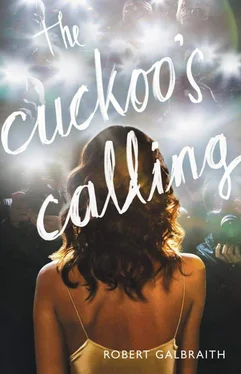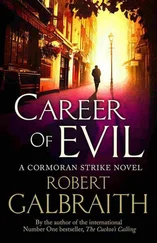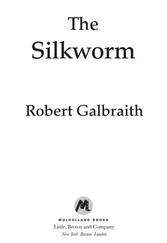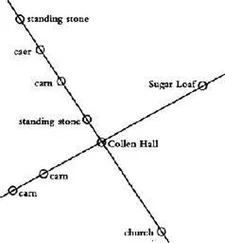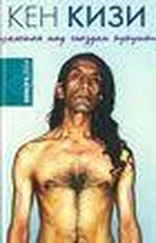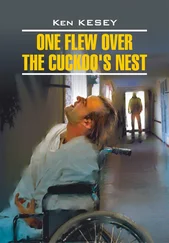“‘It’s too late, I’ve already done it!’ she screamed. And you called her a lying fucking bitch, and you threw her down into the street to her death.”
Bristow was barely breathing.
“I think you must have dropped the roses at her front door. You ran back out, picked them up, sprinted down the stairs and back into Flat Two, where you rammed them back into their vase. Fuck me, you were lucky. That vase got smashed accidentally by a copper, and those roses were the one clue to show that someone had been in that flat; you can’t have replaced them the way the florist had arranged them, not when you knew you had minutes to get clear of that building.
“The next bit took nerve. I doubt you expected anyone to raise the alarm straight away, but Tansy Bestigui had been on the balcony below you. You heard her screaming, and realized you had even less time to get out of there than you’d been counting on. Wilson ran out to the street to check Lula, and then, waiting at the door, staring through the peephole, you saw him run upstairs to the top floor.
“You reset the alarm, let yourself out of the flat and edge down the stairwell. The Bestiguis are bellowing at each other in their own flat. You run downstairs—heard by Freddie Bestigui, though he had other preoccupations at the time—the lobby’s empty—you run through it and out on to the street, where it’s snowing thick and fast.
“And you ran, didn’t you; hoodie up, face covered, gloved hands pumping. And at the end of the street, you saw another man running, running for his life, away from the corner where he’d just seen his sister fall to her death. You didn’t know each other. I don’t think you had a thought to spare for who he was, not then. You ran as fast as you could, in Deeby Macc’s borrowed clothes, past the CCTV camera that caught you both on film, and off down Halliwell Street, where your luck caught up with you again, and there were no more cameras.
“I expect you chucked the hoodie and the gloves in a bin and grabbed a taxi, did you? The police never bothered looking for a suited white man who was out and about that night. You went home to your mother’s, you made food for her, you changed the time on her clock and you woke her up. She’s still convinced that the two of you were talking about Charlie—nice touch, John—at the precise moment that Lula plunged to her death.
“You got away with it, John. You could have afforded to keep paying Rochelle for life. With your luck, Jonah Agyeman might even have died in Afghanistan; you’ve been getting your hopes up every time you’ve seen a picture of a black soldier in the paper, haven’t you? But you didn’t want to trust to luck. You’re a twisted, arrogant fucker, and you thought you could arrange things better.”
There was a long silence.
“No proof,” said Bristow, at last. It was so dark in the office now that he was barely more than a silhouette to Strike. “No proof at all.”
“I’m afraid you’re wrong there,” said Strike. “The police should have got a warrant by now.”
“For what?” asked Bristow, and he finally felt confident enough to laugh. “To search the bins of London for a hoodie that you say was thrown away three months ago?”
“No, to look in your mother’s safe, of course.”
Strike was wondering whether he could raise the blind quickly enough. He was a long way from a light switch, and the office was very dark, but he did not want to take his eyes off Bristow’s shadowy figure. He was sure that this triple murderer would not have come unprepared.
“I’ve given them a few combinations to try,” Strike went on. “If they don’t work, I suppose they’ll have to call in an expert to open it. But if I were a betting man, I’d put my money on 030483.”
A rustle, the blur of a pale hand, and Bristow lunged. The knife point grazed Strike’s chest as he slammed Bristow sideways; the lawyer slid off the desk, rolled over and attacked again, and this time Strike fell over backwards in his chair, with Bristow on top of him, trapped between the wall and the desk.
Strike had one of Bristow’s wrists, but he couldn’t see where the knife was: all was darkness, and he threw a punch that hit Bristow hard under the chin, knocking his head back and sending his glasses flying; Strike punched again, and Bristow hit the wall; Strike tried to sit up, with Bristow’s lower body pinning his agonizing half-leg to the ground, and the knife struck him hard in the upper arm: he felt it pierce the flesh, and the flow of warm blood, and the white-hot stinging pain.
He saw Bristow raise his arm in dim silhouette against the faint window; forcing himself up against the lawyer’s weight, he deflected the second knife blow, and with an almighty effort managed to throw the lawyer off, and the prosthesis slid out of his trouser leg as he tried to pin Bristow down, with his hot blood spattering over everything, and no knowledge of where the knife was now.
The desk was knocked over by Strike’s wrestling weight, and then, as he knelt with his good knee on Bristow’s thin chest, groping with his good hand to find the knife, light split his retinas in two, and a woman was screaming.
Dazzled, Strike glimpsed the knife rising to his stomach; he seized the prosthetic leg beside him and brought it down like a club on Bristow’s face, once, twice—
“Stop! Cormoran, STOP! YOU’RE GOING TO KILL HIM!”
Strike rolled off Bristow, who was no longer moving, dropped the prosthetic leg and lay on his back, clutching his bleeding arm beside the overturned desk.
“I thought,” he panted, unable to see Robin, “I told you to go home?”
But she was already on the telephone.
“Police and ambulance!”
“And get a taxi,” Strike croaked from the floor, his throat dry from so much talking. “I’m not traveling to hospital with this piece of shit.”
He stretched out an arm and retrieved the mobile that lay several feet away. The face was smashed, but it was still recording.
Nihil est ab omni
Parte beatum.
Nothing is an unmixed blessing.
Horace,
Odes , Book 2
THE BRITISH ARMY REQUIRES OF its soldiers a subjugation of individual needs and ties that is almost incomprehensible to the civilian mind. It recognizes virtually no claims higher than its own; and the unpredictable crises of human life—births and deaths, weddings, divorces and illness—generally cause no more deviation to the military’s plans than pebbles pinging on the underbelly of a tank. Nevertheless, there are exceptional circumstances, and it was due to one such circumstance that Lieutenant Jonah Agyeman’s second tour of duty in Afghanistan was cut short.
His presence in Britain was urgently required by the Metropolitan Police, and while the army does not generally rate the claims of the Met higher than its own, in this case it was prepared to be helpful. The circumstances surrounding the death of Agyeman’s sister were garnering international attention, and a media storm around a hitherto obscure Sapper was deemed unhelpful both to the individual and the army he served. And so Jonah was put on a plane back to Britain, where the army did its impressive best to shield him from the ravenous press.
It was assumed by considerable numbers of the news-reading public that Lieutenant Agyeman would be delighted, firstly to be home from combat, and secondly to have returned in the expectation of wealth beyond his wildest imaginings. However, the young soldier that Cormoran Strike met in the Tottenham pub one lunchtime, ten days after the arrest of his sister’s murderer, was almost truculent, and seemed still to be in a state of shock.
Читать дальше
